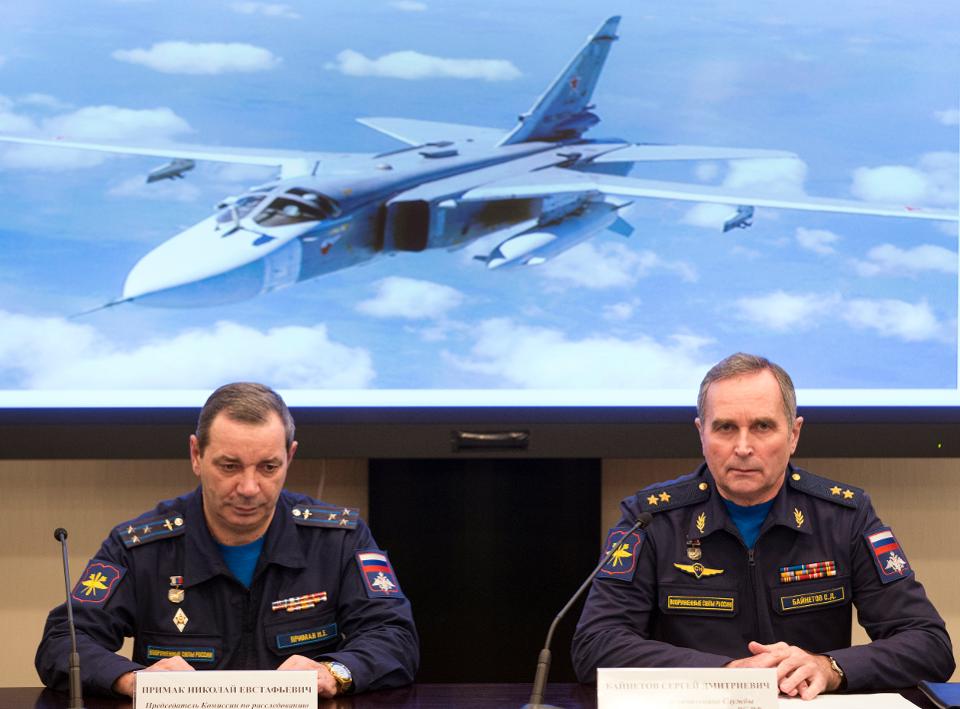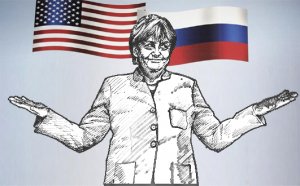
Doug Bandow
Senior Fellow, the Cato Institute
Turkey and Russia have kissed and made up. Or at least done the diplomatic equivalent. Turkish President Recep Tayyip Erdogan expressed his regret over the shoot-down of a Russian aircraft last November. Russian President Vladimir Putin began dropping his government’s retaliatory sanctions. There’s talk of possible cooperation over Syria.
Reducing tensions between the two is good for them and the region. As well as for the U.S. and NATO. A conflict between Moscow and Ankara over the Syrian civil war would be simple madness. Such a fight would be truly catastrophic if the U.S. and NATO were drawn in. Next America and Russia should restore their working relationship.
For centuries Turkey and Russia battled each other over territorial ambitions and Black Sea access. The Europeans backed the Ottoman Empire against the Russian Empire in the Crimean War. In World War I the Europeans split, with the Ottomans and Russians on opposite sides. Both "ancien regimes” then collapsed. Ankara stayed out of World War II but joined NATO during the Cold War, thereby winning the backing of both America and Europe against the Soviet Union.
Turkish ties with Moscow improved after the collapse of the Soviet Union. Ankara largely avoided the crossfire during the recent deterioration in the West’s relationship with Russia. Turkey is a major energy consumer and viewed Moscow as a useful counterweight to Europe, which criticized Erdogan’s growing repression. But everything changed with last fall’s downing of a Russian warplane which briefly flew over Turkish territory.

Col. Nikolai Primak, left, head of Russian investigation commission, and Lt-Gen. Sergei Bainetov speak about the Russian Su-24 bomber, seen behind, which was shot down by Turkey at the border with Syria on Nov. 24. (AP Photo/Pavel Golovkin)
Ankara knew the plane meant Turkey no ill. President Erdogan was suspected of seeking to punish Moscow for backing the Syrian government, which he wanted to overthrow, and targeting Turcomen insurgents allied with Ankara. He may also have believed that triggering Russian retaliation would drag the rest of the alliance into the Syrian imbroglio on his side.
However, contrary to claims that Putin is the reincarnation of Joseph Stalin or Adolf Hitler, the Russian leader responded circumspectly. He imposed economic sanctions, added anti-aircraft weapons, and threatened retaliation for another incident. He also reinforced attacks on Syrian insurgents, including those backed by Ankara, and supported Kurdish forces, viewed by Turkey as terrorists tied to the Kurdistan Workers’ Party (PKK). Yet Moscow carefully avoided triggering NATO intervention.
Turkey lost ground geopolitically. Although Washington and NATO voiced official support for Turkey, they expressed their irritation with Erdogan’s recklessness. "NATO cannot allow itself to be pulled into a military escalation with Russia as a result of the recent tensions between Russia and Turkey,” said Luxembourg Foreign Minister Jean Asselborn. Alliance officials reportedly warned Ankara against any action that could trigger conflict.
The Obama administration refused to consider targeting Moscow’s forces. Several Republican Party presidential candidates threatened to shoot down Russian aircraft while imposing a no-fly zone over Syria. However, few Americans—who had overwhelmingly rejected President Barack Obama’s proposal to intervene after the Assad government’s use of chemical weapons—backed such a mad idea. Triumphing over the GOP hawks was Donald Trump, who proposed a much more conciliatory policy toward Moscow.

Turkish President Recep Tayyip Erdogan (C) greets supporters as he arrives for the inauguration of the Bayzid I Mosque at the Esenboga International Airport in Ankara, on June 23, 2016. (ADEM ALTAN/AFP/Getty Images)
Ankara found itself at odds with the U.S. in Syria as well. Washington focused on combatting the Islamic State, even working with the Kurds despite Erdogan’s rage. Moscow negotiated with the U.S. to forge a ceasefire agreement that moderated fighting in Syria. Overall, Russia came far closer than Turkey to attaining its objectives, fostering a revival of the Assad government’s military fortunes.
Erdogan faced other challenges. The economy slowed, reducing public tolerance of rampant corruption. The president retained support of a bare majority of the Turkish population, but political polarization fomented internal violence. Indeed, Ankara broke its ceasefire with the PKK for political advantage. Increasing authoritarianism at home—the government’s veritable declaration of war on the press and most anyone else criticizing Erdogan—brought greater international criticism, especially in Europe. Ankara’s earlier tolerance of Islamic State activities dissolved after a spate of terrorist attacks in Turkey, most recently at the Istanbul airport.
Ankara recently launched several diplomatic initiatives. It reached a controversial agreement with Europe to halt unauthorized migration further north. Moreover, Turkey normalized relations with Israel, strained since the latter’s 2010 attack on a Turkish vessel bound for Gaza, which killed several Turkish citizens. Now Ankara has retreated from its confrontation with Moscow.



_jpg/250px-ElbeDay1945_(NARA_ww2-121).jpg)









